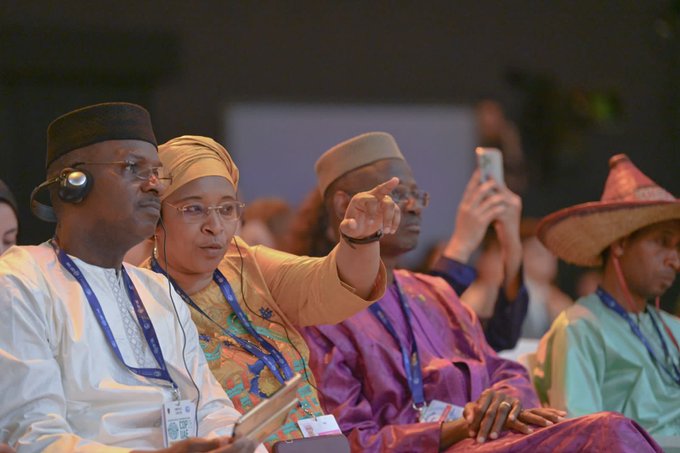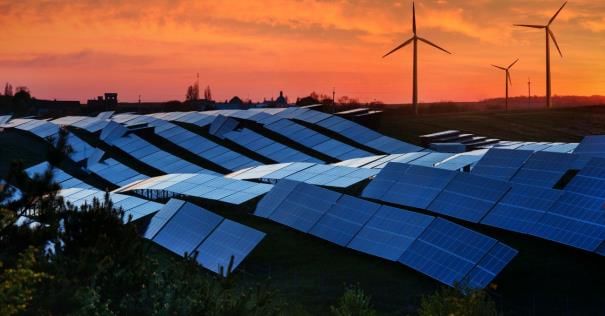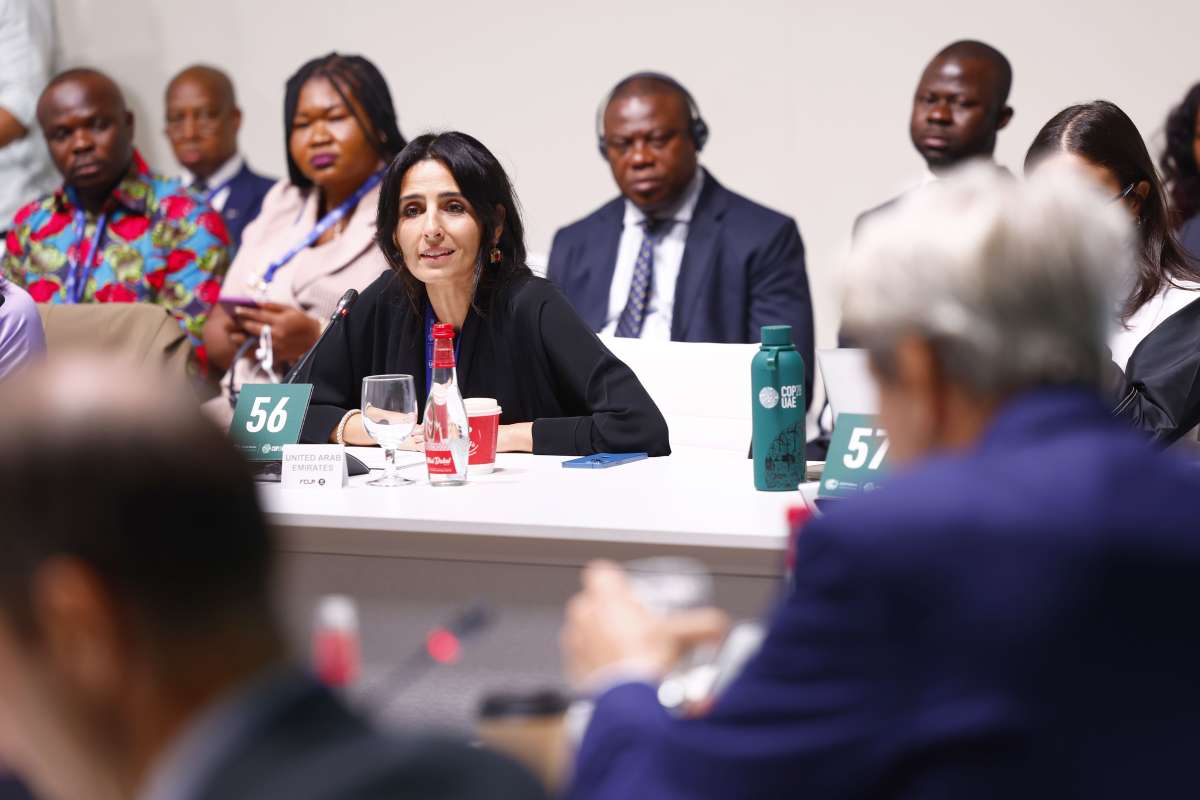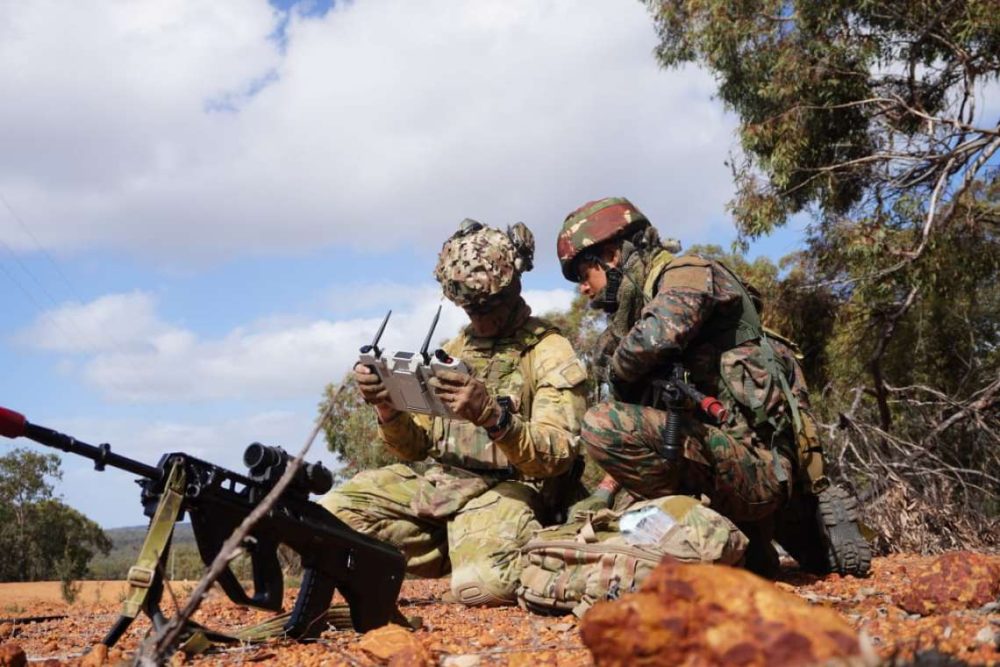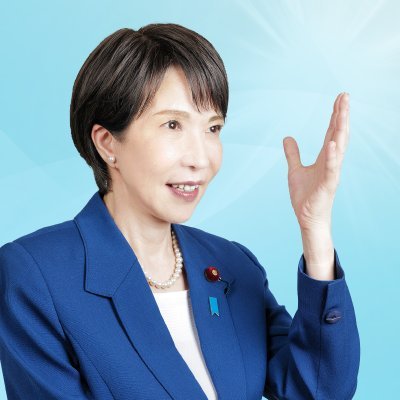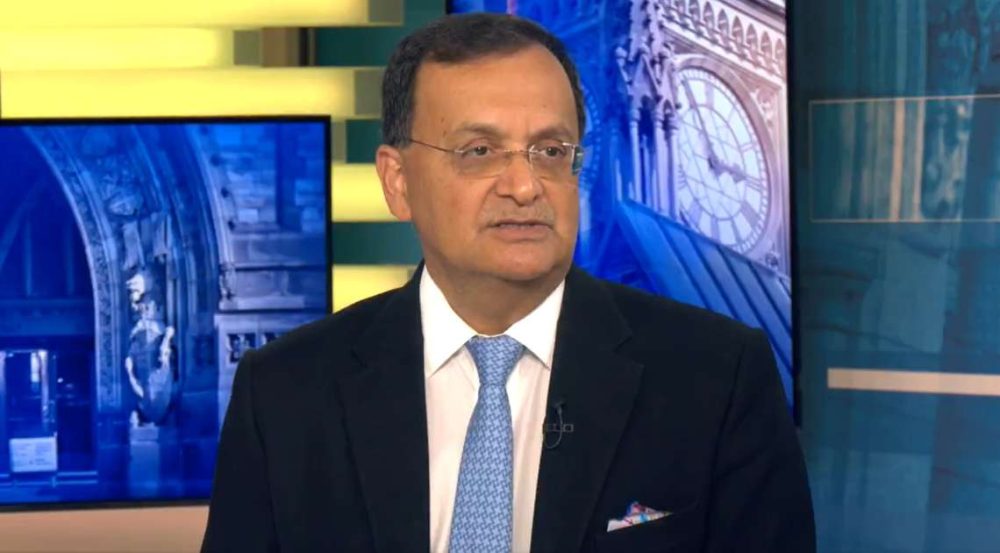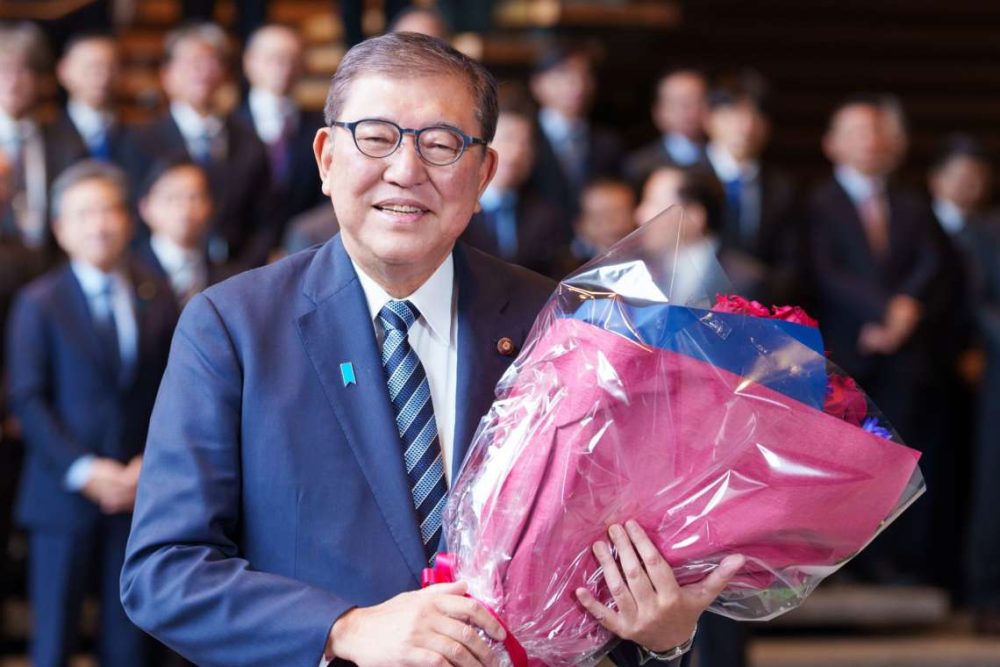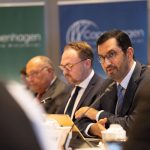Norway’s Prime Minister Jonas Gahr Store also highlighted his country’s commitment to the event’s ambitious renewable energy targets…reports Asian Lite News
The call for a significant increase in renewable energy investments resonated strongly on the third day of COP28, with various leaders advocating for a binding agreement at the Dubai event.
In the High-Level Segment National Statements, German Chancellor Olaf Scholz outlined a tripartite proposal to reinforce the gathering’s recurring themes.
“I propose three initiatives today. Firstly, making renewable energy expansion a top global energy policy priority. Here in Dubai, let’s set two binding goals, tripling renewable energy expansion and doubling energy efficiency by 2030,” Scholz stated.
“My second point addresses international collaboration. We require platforms for developing collective solutions to transformation challenges.”
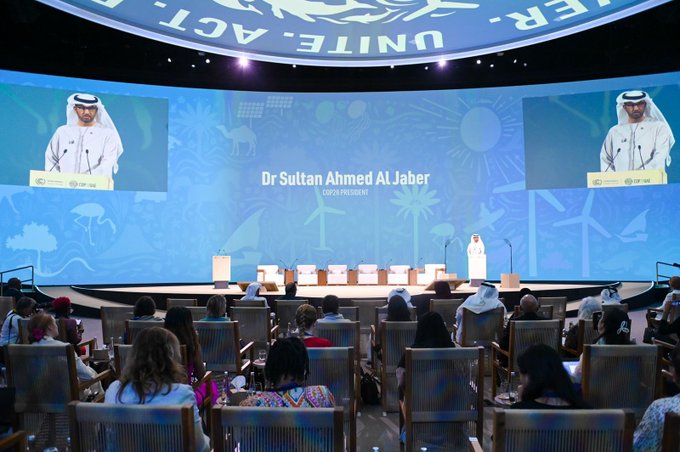
He added: “Thirdly, I wish to discuss solidarity and responsibility. In 2022, Germany exceeded its goal of providing €6 billion ($6.5 billion) annually for international climate finance.”
Norway’s Prime Minister Jonas Gahr Store also highlighted his country’s commitment to the event’s ambitious renewable energy targets.
On the other hand, Iceland’s Prime Minister Katrin Jakobsdottir reaffirmed her nation’s dedication to advancing global energy transition.
“We must drastically reduce emissions. Accelerating the green energy transition, scaling up green solutions, enhancing nature-based solutions, and ensuring polluters pay are essential. However, we also need to reduce our focus on maximizing production and consumption, shifting toward sustainability and well-being,” Jakobsdottir remarked.
Other leaders underscored the critical need for financial support to assist developing countries in their transition efforts.
“The world must honor its financial pledges. In 2022, the IMF (International Monetary Fund) reported $7 trillion spent on fossil fuel subsidies, yet the global commitment to the Paris Agreement’s $100 billion annual target remains challenging,” stated Mark Brown, prime minister of Cook Islands.
Liberia’s President George Weah also emphasized the importance of improved global financing mechanisms, highlighting the country’s need for support to strengthen its climate action initiatives.
Additionally, leaders from developing countries have called out other nations’ commitments to lack of action.
“The Paris Agreement was a beacon of hope, a promise made by the world to safeguard our planet and its inhabitants. However, the reality falls shorter than the commitments made, and the burden of climate action continues to disproportionately fall on the shoulders of developing nations despite our minimal contribution to the crisis while the big polluters do their best to lecture us but not to stop themselves,” Edi Rama, prime minister of Albania, said.
Eswatini’s Prime Minister Russell Mmiso Dlamini further stressed these points, stating “The commitments made remain just words. Fossil fuels remain high, much against the initial plans.”
“In Eswatini, trucks are queuing in large numbers in borders carrying hundreds of tons of coal in transit to the developed world. While this continues, the use of nature-based mitigation is being promoted. With such practices, reaching net zero by 2050 will be impossible and developing countries should not be made to pay through the use of carbon markets,” he added.
Despite some nations being short of their commitments, the US has continued to demonstrate action with the announcement of a new pledge to the global climate fund.
“Today, I’m proud to announce a new $3 billion pledge to the green climate fund, which helps developing countries invest in resilience, clean energy, and nature-based solutions,” said Kamala Harris, US vice president.
She added: “Today, we are demonstrating in action how the world can and must meet this crisis. This is a pivotal moment, our action collectively, or worse our inaction, will impact millions of people for decades to come.”

Moreover, global leaders have also laid out their accomplishments as well as future strategies for combating climate change.
“We have cut our coal use by over 80 percent. We are growing our economy at a much faster pace than the eurozone average while reducing emissions. In total, our emissions are down by 43 percent from 2005 as we turn to renewable energy, the best performance among European countries,” Kyriakos Mitsotakis, prime minister of Greece, said.
“Burundi has committed via the Nationally Determined Contributions to protect the environment, to strengthen resilience toward climate change, and to boost food security. This is infused in our national policies and our vision for Burundi. An emerging country by 2040, and a developed country by 2060,” Evariste Ndayishimiye, president of Burundi, said.


